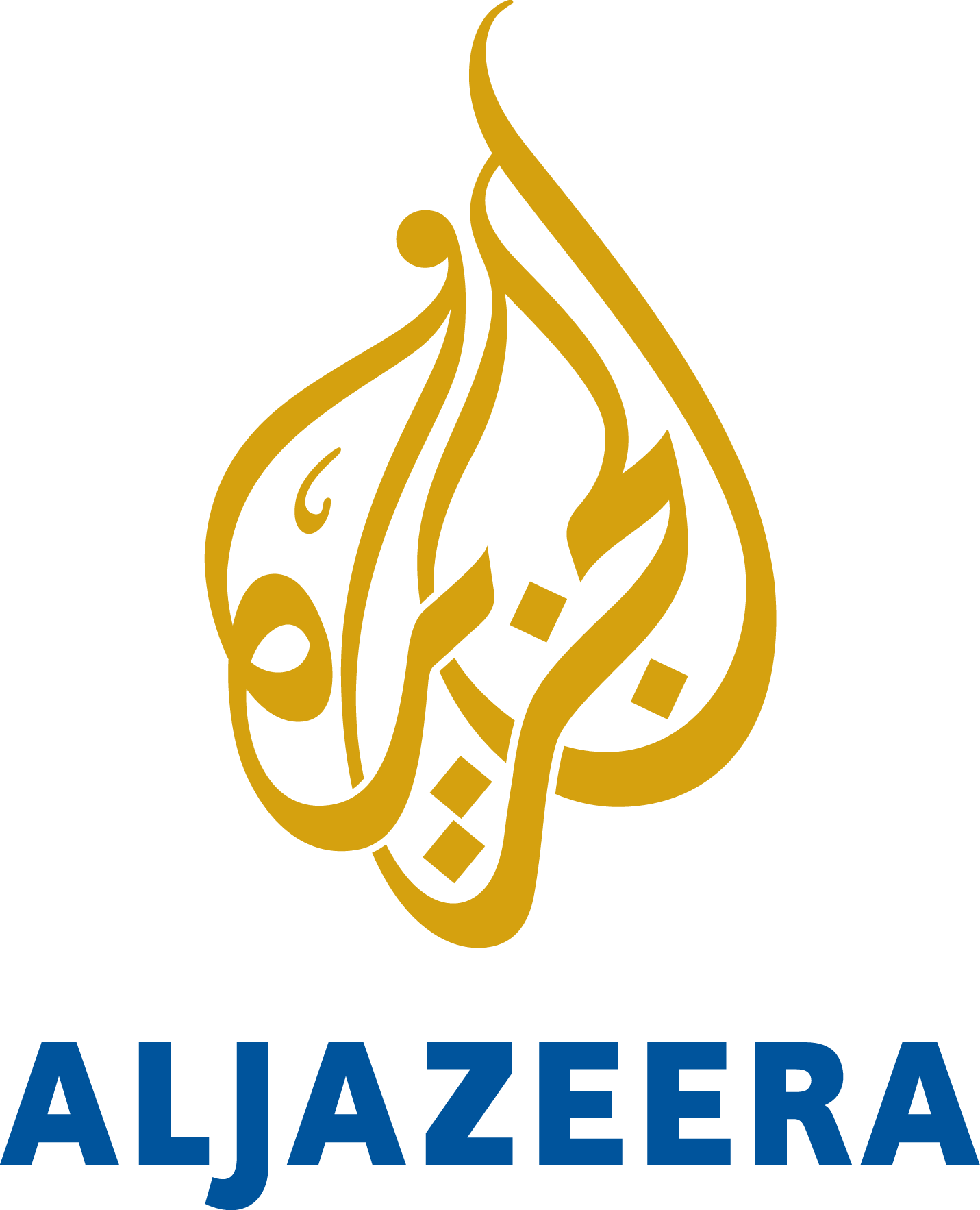The silly side of sanctions
Late last year, I was invited by noted Syrian political writer Sami Moubayed to contribute to a new reform-oriented English language magazine called "FW:", which would appear on newsstands throughout Syria. I accepted with delight, and sent along an article discussing US sanctions on Syria.
This was a particularly meaningful contribution for me, because in some other parallel universe, my 8 great-grandparents decided not to leave Aleppo nearly 100 years ago and as fate would have it, just the right combination of Ajjan, Wardy, Fattell, and Haddad DNA produced a guy named George, identical to me but born and raised in Syria - and maybe sometime in early 2007 he walked past a local newsstand, picked up a copy of a new magazine called "FW:", and read something in it that changed the way he looked at the world.
Anyway, my article appears along with others written by the likes of Syrian Ambassador to the USA Imad Moustapha, Georgetown University Professor Steven Heydemann, Washington Post columnist David Ignatius, and popular Syrian blogger Ghalia Azmeh.
The article is not yet online, but scans are available here: page 1 and page 2. The text is below.
----------------------
The silly side of sanctionsby George Ajjan
Since September 11, 2001, the United States has significantly increased its effort to isolate nations it calls "State Sponsors of Terrorism", hoping to encourage behavior more conducive to American objectives. The State Department prepares this list annually, which currently includes perennial American enemies Iran, North Korea, as well as Cuba, and also contains nations with whom the United States still has diplomatic relations – Sudan and Syria – while Iraq and Libya have been removed in recent years.
For its part, Syria earned the State Sponsor of Terrorism designation on December 29, 1979, under Democrat President Jimmy Carter. Of all the countries currently classified as such, Syria has been on the list for the longest period of time – even Iran was not added until 1984. The main reasons for Syria's inclusion on this list, despite the fact that the US State Department acknowledges that Syria has not been directly implicated in a terrorist act since 1986, pertain to its ongoing support of Lebanese and Palestinian resistance groups like Hezbollah, Hamas, Islamic Jihad, and others, some of which operate on Syrian soil. Interestingly, Lebanon, whose cabinet itself includes ministers belonging to Hezbollah, has never been classified by the United States as a State Sponsor of Terrorism. (continued...)
In any case, Syria's inclusion on this list has for many years automatically subjected it to a general program of sanctions which includes a wide-ranging ban on arms-related exports and sales, as well as prohibitions on economic assistance, either direct or through organizations like the World Bank. Also, a number of penalties and disincentives apply to any American citizen or company who attempts to subvert these measures.
Historically speaking, the application of sanctions programs like these has resulted in a power struggle between Congress and the White House, in both Democrat and Republican Administrations. Because the President holds the Authority to nominate "State Sponsors of Terrorism", and therefore to apply sanctions, some members of Congress have sought additional oversight on such matters. They consider it a dereliction of their constitutional duty to give any President carte blanche in matters pertaining to trade, including sanctions, because the US Constitution explicitly states in Article I, Section 8, that Congress has the power to regulate commerce with foreign nations. On the other hand, various Presidents have resisted attempts by Congress to limit sanctioning power, citing Article II, Section 2, which gives the White House alone the power to make treaties and conduct foreign affairs.
In the aftermath of September 11, 2001, however, the intensity of these political battles dissipated, as both the Executive and Legislative Branches sought to burnish their anti-terrorism credentials. Cracking down on the handful of nations already classified as State Sponsors of Terrorism was an obvious starting point. For that reason, congressional leaders from both parties worked directly with President Bush to craft legislation that would, in the context of constitutional compromise provisions, specifically seek to increase sanctions and isolate Syria. Since there is little to be gained politically by defending Syria in Washington, support for the measures was nearly unanimous in both the House of Representatives and the Senate – also reflecting a rare opportunity for bipartisan cooperation in an otherwise bitterly divided political climate in DC between Republicans and Democrats.
Accordingly, the Syria Accountability Act was passed by both houses of Congress, and subsequently the President signed an Executive Order on May 11, 2004, which contained 5 specific sanctions. Most of these were already covered by other laws pertaining to nations on the Terrorist Sponsor list, such as a prohibition of military items and a ban on Syrian aircraft landing in the US, but the key factor introduced in 2004 was a prohibition on the export to Syria of American products other than food and medicine. The President chose not to order some of the more spiteful items from the "menu" provided by Congress, which includes restriction on travel of Syrian diplomats to within a 25-mile radius of their posting in the United States or closing the US Embassy in Damascus (although the Ambassador Margaret Scobey was officially recalled following the assassination of former Lebanese Prime Minister Rafik Hariri in 2005).
While the prohibition of American exports to Syria has had some economic impact, the overall results of the increased sanctions on Syria have been lackluster. On a strategic level, the sanctions imposed by the Bush Administration, because they are largely unilateral, have neither significantly decreased terrorist threats nor promoted Syrian conduct more amenable to President Bush's interests. Furthermore, on a tactical level, poor implementation of the existing sanctions has in some cases made a mockery of Bush's goal of spreading freedom and democracy in the Arab and Islamic world.
Earlier in 2006, nearly 2 years after the sanctions were first introduced, a congressional subcommittee concerning the Middle East held a hearing to discuss the effect of unilateral sanctions specifically associated with the Syria Accountability Act, and the possibility of achieving better results by expanding the breadth and depth of the existing sanctions. To determine the impact, subcommittee member Congressman Gary Ackerman, a Democrat from New York, asked each of the 4 testifying panelists to rate numerically, on a scale of 0 to 10, the impact of the Syrian sanctions toward achieving a change in behavior. The average was less than 4, suggesting that the sanctions had fallen far short of their desired effect.
More telling, however, was Ackerman's follow-up question: if the full menu of sanctions provided under the Syria Accountability Act were introduced, what would be the impact? The panel's consensus: the performance would not change. In fact, both of the panel's top experts, Ted Kattouf (former US Ambassador to Syria) and David Schenker (a junior neoconservative and former adviser to Defense Secretary Donald Rumsfeld on Syria, Lebanon, Palestine, and Jordan) pointed out that unilateral sanctions, without European concurrence, would accomplish little. They also suggested that a more harsh sanctions program would actually worsen the situation and provoke even greater conflict between Syrian actions and American objectives.
In addition to these strategic errors mentioned by Kattouf and Schenker, the US also needs to reevaluate the tactical elements of the existing sanctions in place, and the guidelines given to companies who make decisions regarding transactions with sanctioned nations like Syria. In some cases, the policies are downright reckless, especially concerning virtual business conducted over the Internet.
For example, the website called Syriapol – A Syrian Democracy Project, a public opinion portal designed to measure Syrian political attitudes toward governance, economic progress, democratic reforms, and the peace process, was blocked from view in Syria. Contrary to intuition, though, it was not the Syrian government that had censored the site, but rather the American company, a very popular webhosting service called GoDaddy.com, from whom the domain name had been purchased, which blocks anyone inside Syria from accessing any website that they register. The company explained, "The United States Government asks that we do not conduct business with [Syria]…if a person resides in [Syria], they will not be able to complete a purchase from our website or access our network…this means that people in [Syria] will not be able to access our services."
The irony of this position is beyond ridiculous. A website branded as "A Syrian Democracy Project", devoted to promoting democratic concepts to the Syrian people in line with the Bush Administration’s objectives, cannot be accessed because of American sanctions designed to punish the Syrian government for not being democratic enough.
This flawed tactical policy espoused by the Bush Administration blatantly spites the President's stated goal of spreading freedom. It also contradicts the strategic advice of the congressional panelists, several of whom pointed out the importance of preserving people-to-people exchange between conflicting nations. America cannot
expect to see positive change and a strengthening of a reform agenda in countries like Syria if it supports attempts to block Syrian citizens from even viewing the Internet.
US sanctions policy is broken, according to strategic theorists as well as grassroots practitioners. America must immediately remedy the destructive aspects of its existing protocols, if it is to have any hope of encouraging vital homegrown democratic reforms in the Middle East.
George Ajjan
The author is a Republican activist and member of the Arab American Institute's National Policy Council.
O --- This article first appeared in the English-language Syrian magazine "FW:" in its inaugural issue of January, 2007.
This was a particularly meaningful contribution for me, because in some other parallel universe, my 8 great-grandparents decided not to leave Aleppo nearly 100 years ago and as fate would have it, just the right combination of Ajjan, Wardy, Fattell, and Haddad DNA produced a guy named George, identical to me but born and raised in Syria - and maybe sometime in early 2007 he walked past a local newsstand, picked up a copy of a new magazine called "FW:", and read something in it that changed the way he looked at the world.
Anyway, my article appears along with others written by the likes of Syrian Ambassador to the USA Imad Moustapha, Georgetown University Professor Steven Heydemann, Washington Post columnist David Ignatius, and popular Syrian blogger Ghalia Azmeh.
The article is not yet online, but scans are available here: page 1 and page 2. The text is below.
----------------------
The silly side of sanctionsby George Ajjan
Since September 11, 2001, the United States has significantly increased its effort to isolate nations it calls "State Sponsors of Terrorism", hoping to encourage behavior more conducive to American objectives. The State Department prepares this list annually, which currently includes perennial American enemies Iran, North Korea, as well as Cuba, and also contains nations with whom the United States still has diplomatic relations – Sudan and Syria – while Iraq and Libya have been removed in recent years.
For its part, Syria earned the State Sponsor of Terrorism designation on December 29, 1979, under Democrat President Jimmy Carter. Of all the countries currently classified as such, Syria has been on the list for the longest period of time – even Iran was not added until 1984. The main reasons for Syria's inclusion on this list, despite the fact that the US State Department acknowledges that Syria has not been directly implicated in a terrorist act since 1986, pertain to its ongoing support of Lebanese and Palestinian resistance groups like Hezbollah, Hamas, Islamic Jihad, and others, some of which operate on Syrian soil. Interestingly, Lebanon, whose cabinet itself includes ministers belonging to Hezbollah, has never been classified by the United States as a State Sponsor of Terrorism. (continued...)
In any case, Syria's inclusion on this list has for many years automatically subjected it to a general program of sanctions which includes a wide-ranging ban on arms-related exports and sales, as well as prohibitions on economic assistance, either direct or through organizations like the World Bank. Also, a number of penalties and disincentives apply to any American citizen or company who attempts to subvert these measures.
Historically speaking, the application of sanctions programs like these has resulted in a power struggle between Congress and the White House, in both Democrat and Republican Administrations. Because the President holds the Authority to nominate "State Sponsors of Terrorism", and therefore to apply sanctions, some members of Congress have sought additional oversight on such matters. They consider it a dereliction of their constitutional duty to give any President carte blanche in matters pertaining to trade, including sanctions, because the US Constitution explicitly states in Article I, Section 8, that Congress has the power to regulate commerce with foreign nations. On the other hand, various Presidents have resisted attempts by Congress to limit sanctioning power, citing Article II, Section 2, which gives the White House alone the power to make treaties and conduct foreign affairs.
In the aftermath of September 11, 2001, however, the intensity of these political battles dissipated, as both the Executive and Legislative Branches sought to burnish their anti-terrorism credentials. Cracking down on the handful of nations already classified as State Sponsors of Terrorism was an obvious starting point. For that reason, congressional leaders from both parties worked directly with President Bush to craft legislation that would, in the context of constitutional compromise provisions, specifically seek to increase sanctions and isolate Syria. Since there is little to be gained politically by defending Syria in Washington, support for the measures was nearly unanimous in both the House of Representatives and the Senate – also reflecting a rare opportunity for bipartisan cooperation in an otherwise bitterly divided political climate in DC between Republicans and Democrats.
Accordingly, the Syria Accountability Act was passed by both houses of Congress, and subsequently the President signed an Executive Order on May 11, 2004, which contained 5 specific sanctions. Most of these were already covered by other laws pertaining to nations on the Terrorist Sponsor list, such as a prohibition of military items and a ban on Syrian aircraft landing in the US, but the key factor introduced in 2004 was a prohibition on the export to Syria of American products other than food and medicine. The President chose not to order some of the more spiteful items from the "menu" provided by Congress, which includes restriction on travel of Syrian diplomats to within a 25-mile radius of their posting in the United States or closing the US Embassy in Damascus (although the Ambassador Margaret Scobey was officially recalled following the assassination of former Lebanese Prime Minister Rafik Hariri in 2005).
While the prohibition of American exports to Syria has had some economic impact, the overall results of the increased sanctions on Syria have been lackluster. On a strategic level, the sanctions imposed by the Bush Administration, because they are largely unilateral, have neither significantly decreased terrorist threats nor promoted Syrian conduct more amenable to President Bush's interests. Furthermore, on a tactical level, poor implementation of the existing sanctions has in some cases made a mockery of Bush's goal of spreading freedom and democracy in the Arab and Islamic world.
Earlier in 2006, nearly 2 years after the sanctions were first introduced, a congressional subcommittee concerning the Middle East held a hearing to discuss the effect of unilateral sanctions specifically associated with the Syria Accountability Act, and the possibility of achieving better results by expanding the breadth and depth of the existing sanctions. To determine the impact, subcommittee member Congressman Gary Ackerman, a Democrat from New York, asked each of the 4 testifying panelists to rate numerically, on a scale of 0 to 10, the impact of the Syrian sanctions toward achieving a change in behavior. The average was less than 4, suggesting that the sanctions had fallen far short of their desired effect.
More telling, however, was Ackerman's follow-up question: if the full menu of sanctions provided under the Syria Accountability Act were introduced, what would be the impact? The panel's consensus: the performance would not change. In fact, both of the panel's top experts, Ted Kattouf (former US Ambassador to Syria) and David Schenker (a junior neoconservative and former adviser to Defense Secretary Donald Rumsfeld on Syria, Lebanon, Palestine, and Jordan) pointed out that unilateral sanctions, without European concurrence, would accomplish little. They also suggested that a more harsh sanctions program would actually worsen the situation and provoke even greater conflict between Syrian actions and American objectives.
In addition to these strategic errors mentioned by Kattouf and Schenker, the US also needs to reevaluate the tactical elements of the existing sanctions in place, and the guidelines given to companies who make decisions regarding transactions with sanctioned nations like Syria. In some cases, the policies are downright reckless, especially concerning virtual business conducted over the Internet.
For example, the website called Syriapol – A Syrian Democracy Project, a public opinion portal designed to measure Syrian political attitudes toward governance, economic progress, democratic reforms, and the peace process, was blocked from view in Syria. Contrary to intuition, though, it was not the Syrian government that had censored the site, but rather the American company, a very popular webhosting service called GoDaddy.com, from whom the domain name had been purchased, which blocks anyone inside Syria from accessing any website that they register. The company explained, "The United States Government asks that we do not conduct business with [Syria]…if a person resides in [Syria], they will not be able to complete a purchase from our website or access our network…this means that people in [Syria] will not be able to access our services."
The irony of this position is beyond ridiculous. A website branded as "A Syrian Democracy Project", devoted to promoting democratic concepts to the Syrian people in line with the Bush Administration’s objectives, cannot be accessed because of American sanctions designed to punish the Syrian government for not being democratic enough.
This flawed tactical policy espoused by the Bush Administration blatantly spites the President's stated goal of spreading freedom. It also contradicts the strategic advice of the congressional panelists, several of whom pointed out the importance of preserving people-to-people exchange between conflicting nations. America cannot
expect to see positive change and a strengthening of a reform agenda in countries like Syria if it supports attempts to block Syrian citizens from even viewing the Internet.
US sanctions policy is broken, according to strategic theorists as well as grassroots practitioners. America must immediately remedy the destructive aspects of its existing protocols, if it is to have any hope of encouraging vital homegrown democratic reforms in the Middle East.
George Ajjan
The author is a Republican activist and member of the Arab American Institute's National Policy Council.
O --- This article first appeared in the English-language Syrian magazine "FW:" in its inaugural issue of January, 2007.















